Uncategorized
How I will Oversee Affairs of Oyo state – AAP Governorship Candidate, Adenike Morenike Victor-Tade

Nigeria is currently in the election atmosphere and the rate politicians are clamouring for their desired seats are on the rise. As much as they are; only few really have good plans for wherever they want to represent.
For Oyo state, it looks like a new dawn is about to hit the citizens with the involvement of one of the most qualified candidates, Adenike Morenike Victor-Tade in the battle for the highly coveted seat in the state. The Industrious woman and Indigene of Ibadan who is the candidate of the Advanced Allied Party (AAP), a party which one of its strongholds propagates in youths has a lot of never-heard-before plans for the state.
In an interview with Editor of Conquest Magazine/Online, Bamidele Adeyemi, she revealed many undaunted clues that would catapult Oyo state to the Next Level.
Excerpts below:
What can you say about your Party?
My party, Advanced Allied Party came into existence after the Not Too Young to Run bill was signed; we came into existence around August 2018. We are just six months old. Our objective is to empower the youths to participate in politics and after youth, are the women; they are the set of people feeling pains and the negative effect of bad leadership.
After the youths, are the women; followed by children. So, since these groups are the ones suffering, if youths or women are in power, they must know what to do to work things right. If there is a government that is really interested in youths; Nigeria will be a better place. Unemployment is the major anxiety we have in Nigeria and it is because of the bad leadership so, giving youths the opportunity to rule is making them responsible, that is what the party is all about and our symbol is golden spoon which means when we are in charge everyone would have good standard of living.
We want to bridge the gap between the too rich and too poor, enhance spirit of entrepreneurship and job creation. When there are jobs, comfort will come, we will be able to produce goods and services, there won’t be breaking of chains of money and before we know it; everyone are busy, everyone’s handwork is bringing money and that is why our presidential candidate is 35 years old from Imo state. We all know that our leaders have successfully made a lot of Nigerian youths financially disable because there is no job. Financially, we are not buoyant in our party because it’s mostly for the youth but we have ideas. We are discipline, we want to do things right, we don’t want the usual way of getting things done; we want to eradicate vote buying, manipulation , we won’t promise what we can’t offer, we don’t have godfathers, we are ready to fight out battle with God on our side.
If you are below 35 years in our party, you won’t pay for ticket and if you are a woman too.
Now that the party has granted you the Gubernatorial ticket for Oyo state, with all your experiences and knowledge. What are those special things you want to offer Oyo state?
Oyo state; educationally we are around 26th position in the country, if Oyo state has been ranked 26th position, I enjoyed Bola Ige’s free education program, even when it wasn’t rosy then, we came out successfully, we had good results. Now, how many public schools can we vouch for, when they sit for WAEC they will have good grades?
Today, we see dilapidated buildings, unserious teachers, I read some application letters and I wonder if they ever went to school. I interviewed an Accountancy student recently, I asked her to give me some theories in accountancy; she couldn’t, an engineering student can’t change bulb, a mechanical engineer can’t change plug in a vehicle. I visited a public hospital; we have to pay for even cotton wool, when you drive, you see students begging for alms; students that are supposed to be in school. If government is taking care of the students; they won’t turn to beggars. I interviewed those youths hawking, a lot of them are graduates, I saw an NCE holder earning (N10, 000), you provide security for yourself, no electricity, an average business person in Oyo state is struggling and that is why so many are running from tax. Probably our leaders feel they can’t be checkmated and that is what prompted me into this mission.
I read accounting and went to a Business school in Lagos, I’m an Entrepreneur, I’m a Baptist pastor; I have a ministry among the youth. I am into Manufacturing and Farming, I’m a Skill developer, Initiator and Pioneer coordinator of Nigeria Baptist Skill Accusation and Empowerment Centre, I’m a Consultant for all African Baptist Youth, I’m a Positive changer, Member of Nigeria Justice of Peace, member of Association of Small and Medium Enterprise, CEO of VNIKS Nigeria Enterprise, President Ultimate Total life Concept, Author, Gospel singer and Tele-preacher.
Oyo state has loads of opportunities; a state with population of 5.6million, for a business person; there is good access to labor and market, Oyo state has boundaries with Kwara, Osun, Ogun, Republic of Benin, this makes it that; you can market your products outside the state If you can clutch the opportunity. Oyo state is more of Agriculture; we have fertile land, but our education, health care, and roads are very bad.
I have gone through Oyo state, I want to maximize what we have and make my people happy, create jobs at every local government. Like Iseyin; where Aso oke is their specialization, why not partner with a company where they can get thread instead of going to Lagos; why can’t we develop a company in Iseyin where thread will be produced, then people making Aso oke in Iseyin will be close to raw material to use. Why not do small cottage industries where it will be public-private ownership? Iseyin people would be commanding 90% shares in the company while Government would have 10%; the 10 percent is just to make Government committed and oversee the activities, if Government is not involved; the people will be left alone. Indigenous people; those that have interest in Aso oke will be employed and as many that are interested would be given opportunity to buy shares with 50% of their salary. Now, let’s move to Igebeti-Saki where Shea-butter is in abundance; this can be used for medicine, cosmetics, my Government would gigantically invest in pharmaceuticals and cosmetics for this would create lots of employment.
They are farmers in Oke-ogun, our yams are always taken outside Nigeria and they rebrand it as theirs, at the end; investors would be attracted to the exported countries and not Oyo state Nigeria. So we will make sure farmers have access to facilities that can make us increase farming business; so that we can able to export some of our produce ideally with a normal routine and this would make investors identifies we have Yam, Shea butter and Aso oke. I went to United States last year; i ate Amala, fufu and I asked where did they got cassava to make the swallow food I ate? They said they have everything there even more than Nigeria and that means there has been some people processing and sending it to other country for consumption. There is need for us to put up more efforts; the more we do, the more job we create for ourselves.
I plan to create furniture companies, Oyo state has tick forest filled with timbers; for the sake of employment, we need to actualize manufacturing company from this God’s gift to humanity. There were also more natural resources; precious stones like: gold and diamond etc. I have met with some experts; they want to partner with us on how to actualize our dream in gold making market. The funny thing is; people just go to these places, pay for ticket to gain entrance, then they started sourcing for stones without proper procedures or consultations. That is why our IGR has problem, they just go inside and take the resources anyhow and make fortunes from it, we must make sure if you are mining; we would weigh what you got and charge you properly for it, there would be jewelry industry at the mining vicinity. Go to Ogbomosho, we are in the season of tomato; tomato is cheap now because there is no silos to store the tomatoes.
Ogbomoso is widely known for abundant in fruits and tomatoes, why do I not create an industry in Ogbomosho where Fruit juice could be produce? No house is tired of drinking juice. I planned building that industry where tomatoes will be processed to tomato paste; we will create lots of employment. Now, come to Ibadan where we have Eleven Local Government. I visits Aba almost every year, I’m into manufacturing shoes and bags; I print on bags myself, I learnt it from Aba, I go to Aba to do fresh courses every year. Hundreds of people from abroad visits Aba every year to buy Aba products; they take it out and rebrand it; Nigerians go abroad to buy Aba made products back home. Why can’t I have textile industries in Ibadan? Why can’t Oyo state be among those states producing NYSC boots, Soldier boots? I want to do all these in Ibadan to boost job creation. N-Power is an extension of NYSC Scheme. Can N30, 000 enough for a man to rent house, can you pay your bills? Can you take care of your parents? So, it’s like still suspending the problems our youths, and this is not a matter of increment of salaries. If you say after One year of N-Power; you will subsequently give those youths N500,000 each for empowerment; those youths would already have a mindset to become a better person the following year.
That leads to my Education program; I believe any education program that can’t lead to self-reliance is not an education. You were sent to school to study Electrical Engineering and after you graduate; you can’t start your own mini Firm, you have learnt nothing! Anything that can’t make you an entrepreneur is not an education. Our schools now have entrepreneurship centers, I went to a school recently to interview the HOD; I asked him what happens after the EED and he said students are not ready to settle down with the acquired skills; this means something is missing, he said some of them don’t have money but Government made a provision that if students can mortgage their certificate; they will be given loan. If schools are serious with EED; students won’t be looking for white collar jobs after school.
A society where entrepreneur is an extension of class work is a total failure. As for my Government, students would spend three days in class room and two days practicing, if you are studying mechanical engineering; you will spend three days in class room, two days with the road side mechanics; see how they do their work, add knowledge as a graduate and package it. I want to make everyone an entrepreneur in Oyo state, let each family have what they are manufacturing, my daughter wanted us to register her own business; I told her to maintain the family’s own. Whenever she produces a bag; she adds our label but includes her own personal contact digits; as young as she is!
I built culture of investment in her; that is academics. If you are studying a course like Mass Communication, you must attach another vocation to it, so you can spend your two days outside class. A graduate of Agriculture being sent to Class room to teach through N-Power would transfer aggression on students because he or she was never trained as a teacher.
In our schools, Agric students shall have two acres of land from their second year, they would spend three days in class room and two days in farm, the Government shall provide the funds and when time for harvest comes; Government would have their percentage and the remaining interest goes to the students. When students are productively engaged; they won’t have time for thuggery.
We will work so much on Research because Nigerians are extremely intelligent, if our Government had giving this much attention; we would have been doing better. The idea of having coaching classes for our children during holidays is not right; let them acquire new things like learning Instruments, Vocational studies; these are what we will do for Secondary School Students.
From Primary to Secondary school; there would be none payment of school fees. It is a promise that my Government would give total free education. I enjoyed it; and for our tertiary institution, the fees will be very minimal. Companies and wealthy people in our society by then would voluntarily support our Government because we have made them happy too, we don’t even have to run after them before they adherent to payment of taxes; they will do it willingly.
The bridges and all gigantic projects are not meant for the masses to enjoy; those do not affect the price of Garri in the market, implementing resourceful ideas to enhance standard of living of a society is more important.
Our Health Centers would be well equipped with staffs, tools and there will be free treatment for staffs too. A patient died recently because there was no generator in the health center and they were owing NEPA bill; reason their electricity were disconnected. This was a Government hospital; there won’t be anything like that in our government.
For the Civil Servants, my Government will make a provision; after 4pm closing hour, you have opportunity to work into any of our industries to spend extra working hours to add to the source of your income. You close by 4pm; just register with Government, you would be allowed to do two hours in any industry of your choice; any income you make will be saved for you and at the end of the month, your income would be calculated, and you have more monthly income. Even as retiree; you can work for just two hours and the take home is a plus. My government will make provision that would elongate the age of our elderly ones, we will ensure they get their gratitude instantaneously; the pension will be regular, this will make them healthy.
Our objective is training you to have other source of income and secondly, preparing you for secure retirement days. We shall build quarters for our aged ones because at certain period; children are no longer available to tends to their daily needs, if they want to go home; they go and come back ,there would be games and other enjoyable amenities in the quarters. All these things make them live longer with constant medical attention. Of course, there would be a registration fee for them but very token.
Any time our Civil servants are due for promotion; they get it, we shall encourage them to go for training. We will also ensure we maximize their potentials without stress so that, they are happy going to office and we will make sure at a certain age before retirement, we make provision for you a entrepreneurship funds; if you’re interested, a certain amount from your salary will be dropping into that scheme so when you retire; the total amount deducted would be allotted back to you.
We will also be making low-cost housing available for civil servants and be removing the money gradually from their salaries. We will also be giving recognition awards to our Civil servants every five years, we won’t give you in cash, we would ask you to give us one of your children in higher institution and placed him/her on scholarship. Children from 0-12 will not pay hospital bill, our aged ones from 65years upward will also not pay hospital bill.
For hooligans in our society, we will engage them. When you positively occupy people; you have solved 60% of security problem. I have so many of them working for me and I pay them. I have farms that I have not gone there in one year; these are people I employed to be running the business activities and I trust them. I love people who can work on their own, with their own directives.
We will also work to eradicate students hawking on the road, from the street. We should find out what the problem is; enroll them in school, empower their parents. We will also have program for the physically challenged according to their abilities.
Can you tell us what VNIKS is all about?
We have VNIKS Entrepreneurship Centre where we train people, we have two hours programme on how to make hair cream and after 45mins we are done, we have programmes that has to do with any duration of your choice. We trained on how to produce cosmetics, how to make shoes, bags, cloths and catering services programme, and hair dressing. We have three months foundational course, and so on.
news
Ramadan 2026: Let’s Be United, Shina Akanni Urges Muslims.

Ramadan 2026: Let’s Be United, Shina Akanni Urges Muslims.
As Muslims all over the world begins the 30 days compulsory fasting and prayer today,top Fuji Musician Aare Sir Shina Akanni Aroworeyin Scorpido has congratulates them for witnessing another month of Ramadan.
Akanni advised them to follow the teachings of the the Holy Prophet Muhammad (SAW) which is peaceful co existence among themselves and their neighbor ‘because Islam is Religion of peace”.
He said the month of Ramadan is an holy month therefore Muslims should try as much as they can to maintain peaceful coexistence among themselves and others and that they should see themselves as ambassador of peace.
While praying for Nigeria,Aare Sir Shina Akanni Aroworeyin Scorpido said he believes that there will be an economic turnaround soon because what’s is happening now are signs of thought times that never last “if we can pecevere things will get better”.
The Scorpido crooner who recently released a hip hop single titled “Magbelo” said he is currently working on a complete album which will be released before the end of the year.
Aare Sir Shina Akanni Aroworeyin Scorpido whose last album ‘ABCD” is still in hot demand said that his next album will be a pot pouri of all kinds of music because his brand of Fuji music is a blend Fuji , Hip-hop,Apala ,Highlife and others.
Uncategorized
The Enemies Within: Jonahs Are Not Manageable — Dr. Chris Okafor
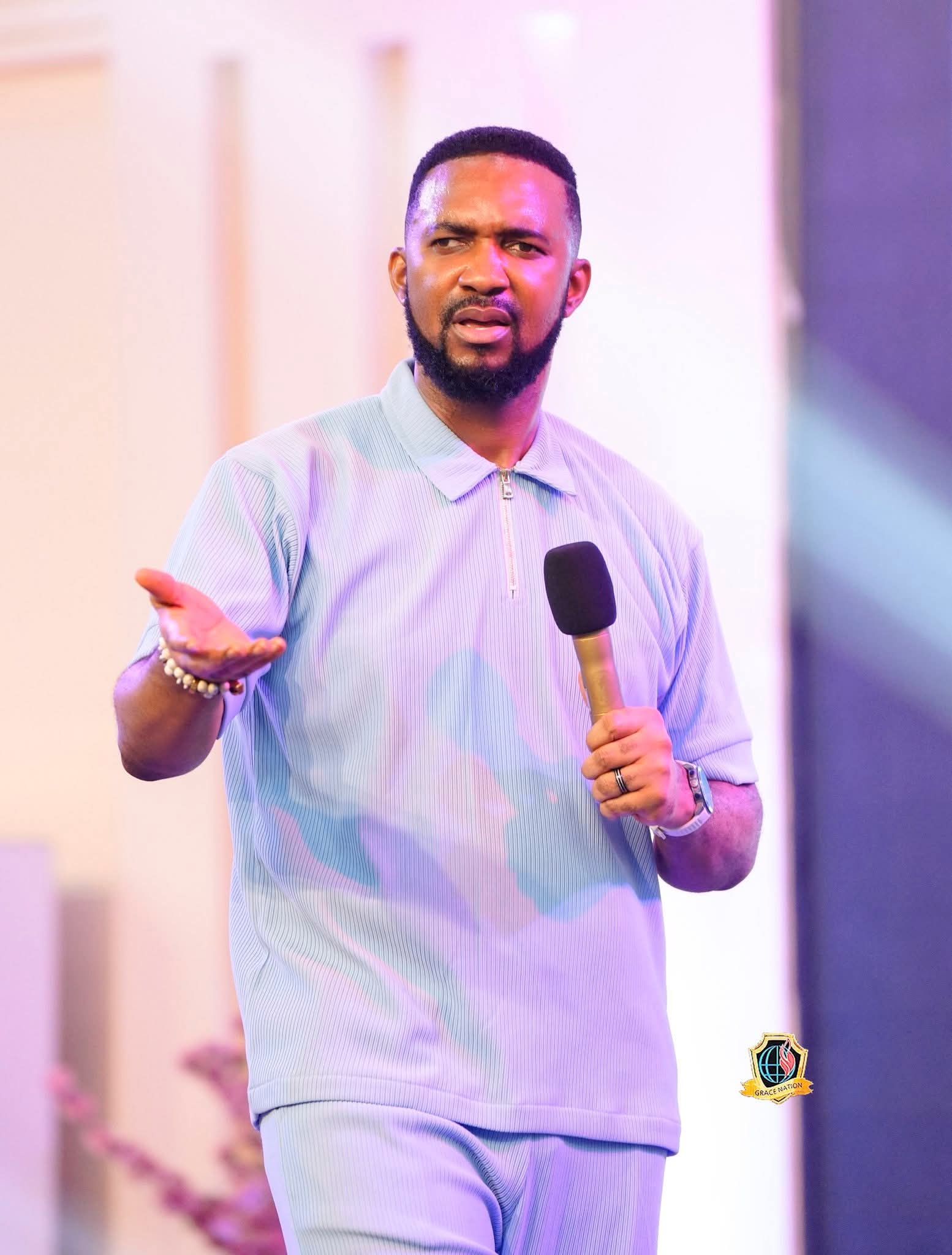
The Enemies Within:
Jonahs Are Not Manageable — Dr. Chris Okafor
…….“To remove Jonah, you must bring Jesus into the matter.”
When a “Jonah” enters a person’s life, confusion, gossip, blackmail, betrayal, and the pull-him-down syndrome often follow. But the moment Jesus Christ is invited into the situation, the storm subsides and stability is restored.
This was the central message delivered by the Generational Prophet of God and Senior Pastor of Grace Nation Global, Dr. Chris Okafor, during the midweek non-denominational Prophetic Healing, Deliverance and Solutions Service (PHDS) held at the international headquarters of Grace Nation Worldwide in Ojodu Berger, Lagos, Nigeria.
The Clergyman also declared that Nothing Happens Without Spiritual Influence
In his sermon titled “The Enemies Within,” Dr. Okafor declared that nothing happens without spiritual involvement. According to him, every visible battle has an invisible root.
Referencing the biblical story of Jonah, the Man of God explained that Jonah’s presence on the ship gave access to a contrary spirit that tormented everyone onboard.
Despite the losses suffered by innocent traders and sailors, the storm persisted because of one man’s disobedience.
However, he noted that when Jesus speaks into a situation, every storm must obey. Just as Christ rebuked the storm and it ceased, so too will the storms in believers’ lives subside when He is invited into their “boat.”
*The Impact of a Jonah*
Dr. Okafor further emphasized that “Jonahs” are difficult to manage. When such individuals are present in one’s circle, progress becomes delayed.
What should ordinarily manifest quickly may be prolonged or frustrated because someone close—someone who understands you deeply—may be operating as a spiritual adversary.
He explained that negative narratives, unnecessary battles, and unexplained setbacks often begin when a “Jonah” gains access to a person’s inner circle.
*The Solution*
“To remove Jonah from the boat of your life,” the Generational Prophet declared, “you must invite Jesus Christ into the matter.”
According to him, when Jesus takes control of the boat, the plans of the enemy are overturned.
What was designed for downfall becomes a testimony. No storm or battle can succeed where Christ reigns, and the enemy is ultimately put to shame.
The midweek service witnessed a strong prophetic atmosphere, with the power of God evident through deliverance, restoration, and divine revelations.
The Generational Prophet ministered deeply in the prophetic, calling out names, villages, and addressing alleged spiritual strongholds, as many lives were reportedly restored—all to the glory of God.
By Sunday Adeyemi
Uncategorized
FROM BORDER TO MARKETS: HOW NIGERIA’S REFORMS ARE REWRITING AND MODERNISING TRADE FACILITATION By O’tega Ogra
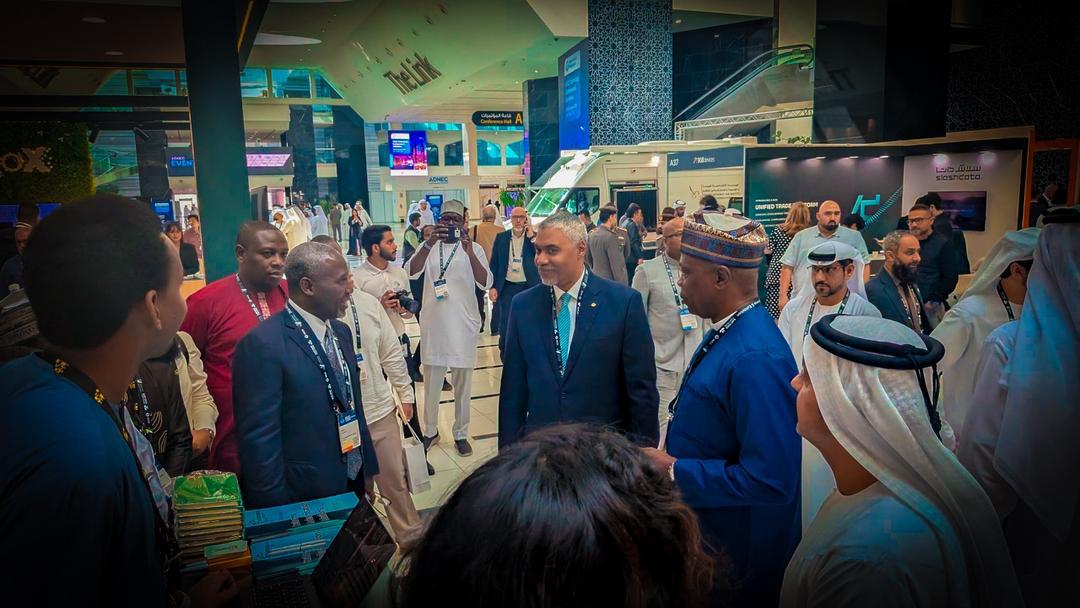
FROM BORDER TO MARKETS: HOW NIGERIA’S REFORMS ARE REWRITING AND MODERNISING TRADE FACILITATION
By O’tega Ogra
On the surface, the 2026 World Customs Organization (WCO) Technology Conference in Abu Dhabi, held in the last week of January, followed a familiar script: flags, formal sessions, carefully worded speeches. But beneath the choreography, something more consequential was unfolding. As customs chiefs and trade officials compared notes on the future of borders, Nigeria arrived not with theory, but with a working proposition.
The Nigeria Customs Service (NCS) Modernisation Project, being implemented through Trade Modernisation Project (TMP) Limited, unveiled to a global audience of customs administrators and policy leaders a window into how Africa’s largest economy is confronting one of the most complex challenges in public administration: reforming the machinery of trade while it is still running.
For decades, customs reform was treated largely as a technical exercise—frequent patches here, shoddy fixes there; new software in one corner, revised procedures in another. Nigeria’s presence in Abu Dhabi signalled something different. TMP Limited, working in partnership with the NCS, advanced the argument that trade is a cornerstone of economic development and must be supported by organic, sustainable partner ecosystems. Such ecosystems deliver speed and trust, revenue and credibility, and secure borders without stifling commerce.
That argument resonated in a room increasingly aware that global trade is no longer defined solely by tariffs and treaties, but by data, interoperability, and the quiet efficiency of systems that simply work.
The annual WCO Technology Conference has, in recent years, become a barometer for the direction of global trade governance. This year’s discussions reflected a shared anxiety: supply chains are more fragile, compliance risks are rising, and governments face mounting pressure to collect revenue without discouraging investment. Customs administrations now sit at the intersection of all three.
Nigeria’s response has been to attempt a full reset.
At the heart of this effort is the NCS Modernisation Project, implemented through a Public-Private Partnership (PPP) arrangement with TMP Limited as the concessionaire. The project seeks to replace fragmented technology deployments and manual processes within the Nigeria Customs Service with a single, integrated framework. This is anchored on B’Odogwu, a Unified Customs Management System (UCMS) that brings together cargo clearance, risk management, payments, and inter-agency collaboration. The ambition is sweeping—and so are the stakes.
Alhaji Saleh Ahmadu, OON, Chairman of TMP, framed the initiative as nothing less than an institutional reconstruction, designed to position the NCS at the forefront of global customs administration technology, aligned with international standards and assurance frameworks.
“Digital trade modernisation is not just about upgrading systems,” he told participants in Abu Dhabi. “It is about upgrading trust, predictability, and confidence in how trade flows through our borders.”
That choice of words matters. Nigeria’s economy has long struggled with the perception gap between its size and the ease of doing business. Investors cite delays. Traders complain of opacity. Government points to revenue leakages. In this context, customs reform becomes as much a credibility project as a technical one.
Saleh’s message was timely and direct: modern trade demands modern customs. Data-driven processes, automation, and risk-based controls are no longer luxuries; they are prerequisites for competitiveness in a world where capital moves faster than policy.
The institutional face of this digital transformation is the Comptroller-General of Customs, Bashir Adewale Adeniyi, who led Nigeria’s delegation to Abu Dhabi. His message reflected a subtle but important shift in how customs leadership now understands its role.
“Customs administrations today must evolve from gatekeepers to facilitators of legitimate trade,” Adeniyi said. “Nigeria’s customs modernisation project reflects our determination to place the Nigeria Customs Service at the centre of national economic transformation.”
It is a familiar refrain globally, but one that carries particular weight in Nigeria, where customs revenue remains a critical pillar of public finance. Automation, Adeniyi argued, is not about weakening control; it is about strengthening it through intelligence rather than discretion.
Risk management systems reduce unnecessary physical inspections. Integrated platforms limit human contact. Data analytics improve compliance targeting. When executed well, the result is faster clearance for compliant traders and tighter scrutiny for high-risk consignments.
In Abu Dhabi, peers from Asia, Europe, and Latin America listened closely to Nigeria’s presentation. Reforming customs in a small, open economy is one thing. Doing so in a market of over 200 million people, home to some of Africa’s busiest ports and its largest economy, is quite another.
Nigeria’s engagement emphasised that customs modernisation is embedded within a broader economic reform agenda under President Bola Ahmed Tinubu, GCFR. Simplifying trade procedures, strengthening revenue assurance, and aligning with international standards form part of a wider effort to reposition the economy for investment-led growth.
What makes the project particularly noteworthy is its insistence on end-to-end coherence. Rather than digitising isolated functions, the reform aims to connect agencies, harmonise data, and reduce duplication across government—an all-of-government approach that acknowledges an uncomfortable truth: trade friction is often created not at the border, but between institutions.
The WCO 2026 Technology Conference offered Nigeria more than a platform; it provided a stress test. Questions from peers were pointed. How will change be sustained across political cycles? How will capacity be built? How will entrenched institutional behaviours be unlearned?
The responses were pragmatic. Reform is being phased. Training programmes are ongoing. International benchmarks are being adopted not as slogans, but as operating standards. There were no claims of perfection—only a clear statement of intent.
“Our engagement here underscores Nigeria’s commitment to international cooperation,” Adeniyi noted. “We are learning, sharing, and contributing to global conversations on the future of customs administration.”
That contribution matters. As Africa moves to deepen regional trade under continental frameworks, customs efficiency will determine whether integration succeeds in practice or remains aspirational on paper. Nigeria’s experience, if successful, could offer a valuable template for other developing economies navigating similar constraints.
In Abu Dhabi, the mood was cautious but curious. Reform fatigue is real in many countries. Yet there was a growing sense that Nigeria’s effort—precisely because of its scale and difficulty—deserves attention.
Borders are rarely glamorous. But they are decisive. In choosing to modernise its borders in public, under global scrutiny, Nigeria is signalling something beyond technical competence. It is signalling seriousness.
And in global trade, seriousness still counts.
O’tega Ogra is Senior Special Assistant to President Bola Ahmed Tinubu, GCFR, responsible for the Office of Digital Engagement, Communications and Strategy in the Presidency.
-

 celebrity radar - gossips6 months ago
celebrity radar - gossips6 months agoWhy Babangida’s Hilltop Home Became Nigeria’s Political “Mecca”
-

 society6 months ago
society6 months agoPower is a Loan, Not a Possession: The Sacred Duty of Planting People
-

 news6 months ago
news6 months agoTHE APPOINTMENT OF WASIU AYINDE BY THE FEDERAL GOVERNMENT AS AN AMBASSADOR SOUNDS EMBARRASSING
-

 society5 months ago
society5 months agoReligion: Africa’s Oldest Weapon of Enslavement and the Forgotten Truth

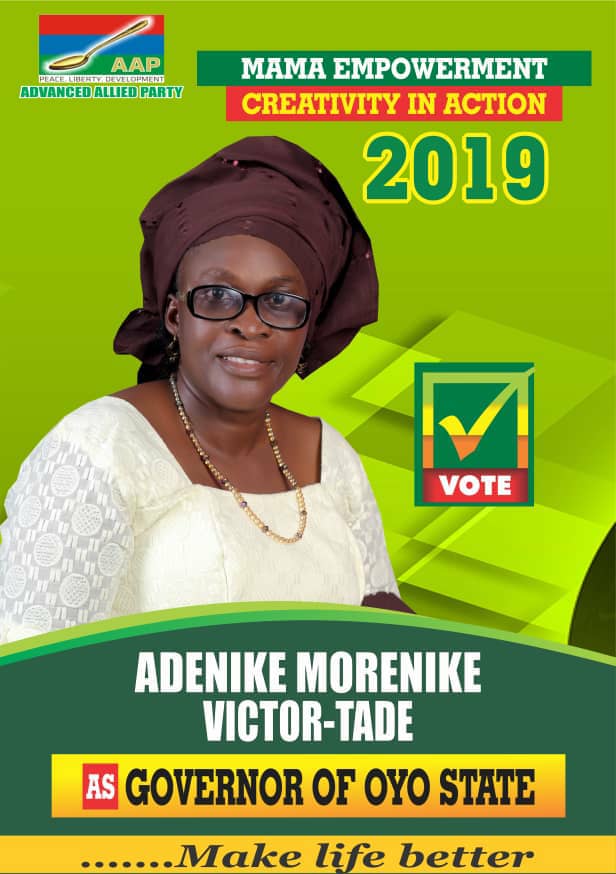


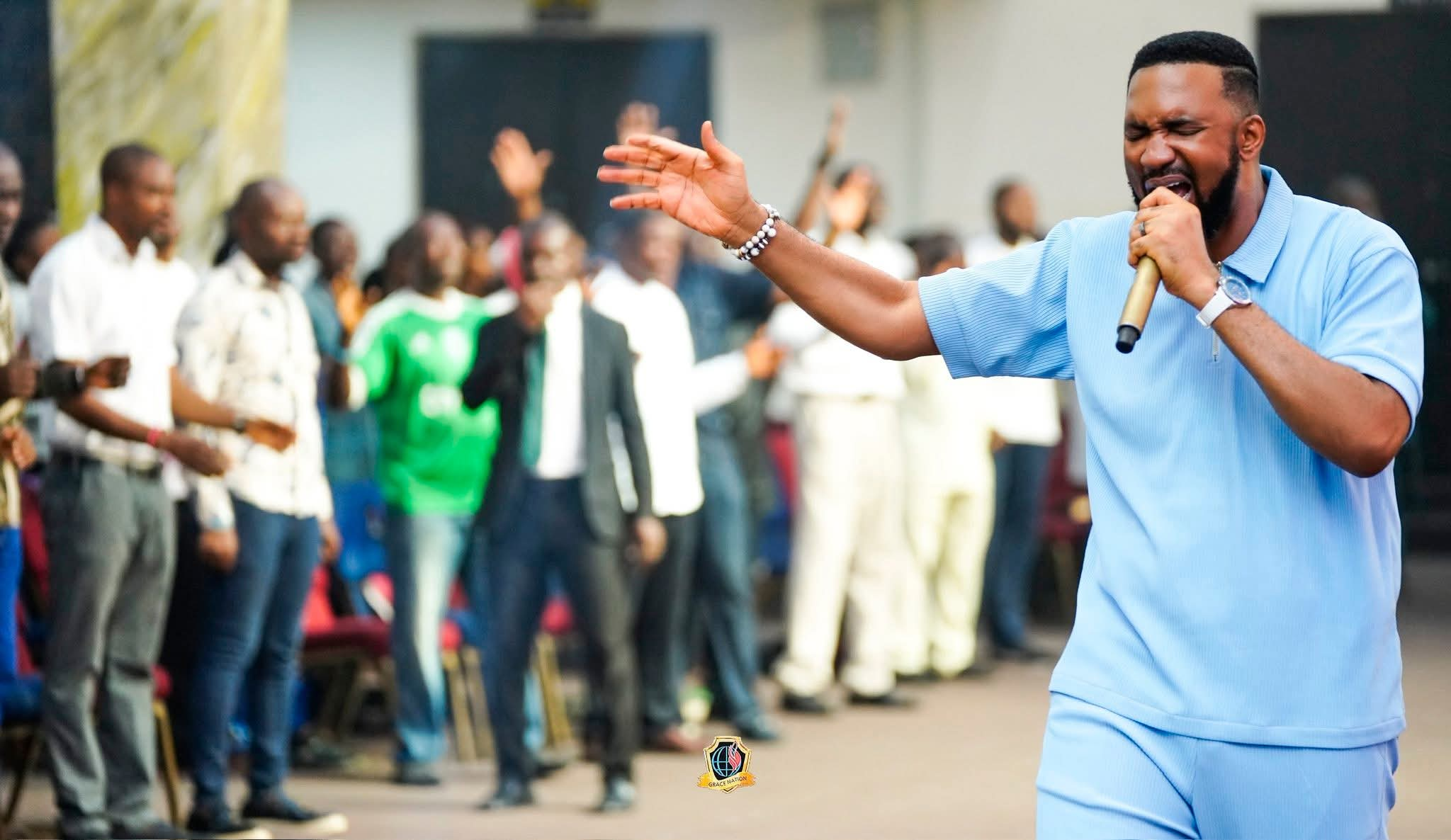
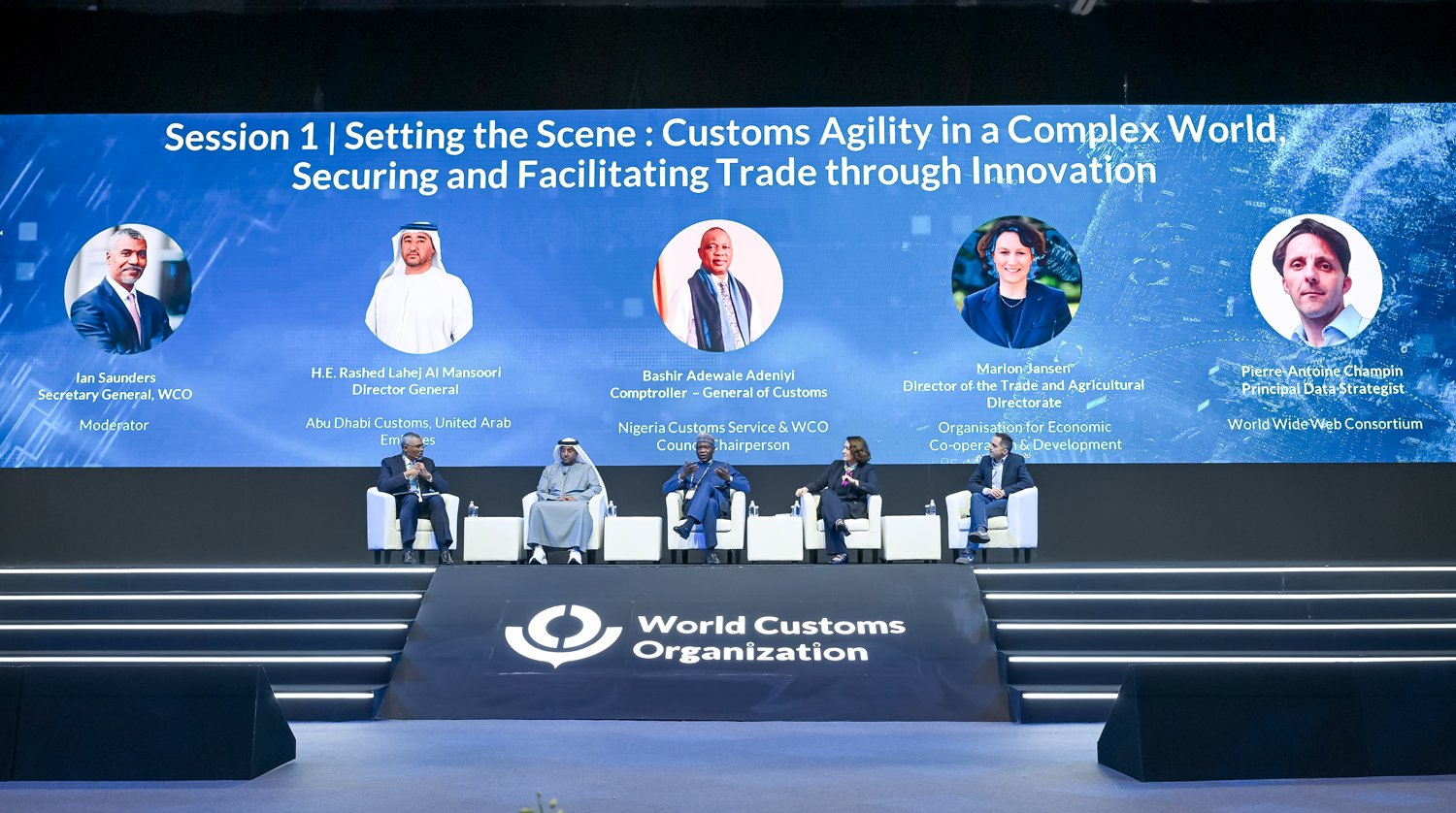
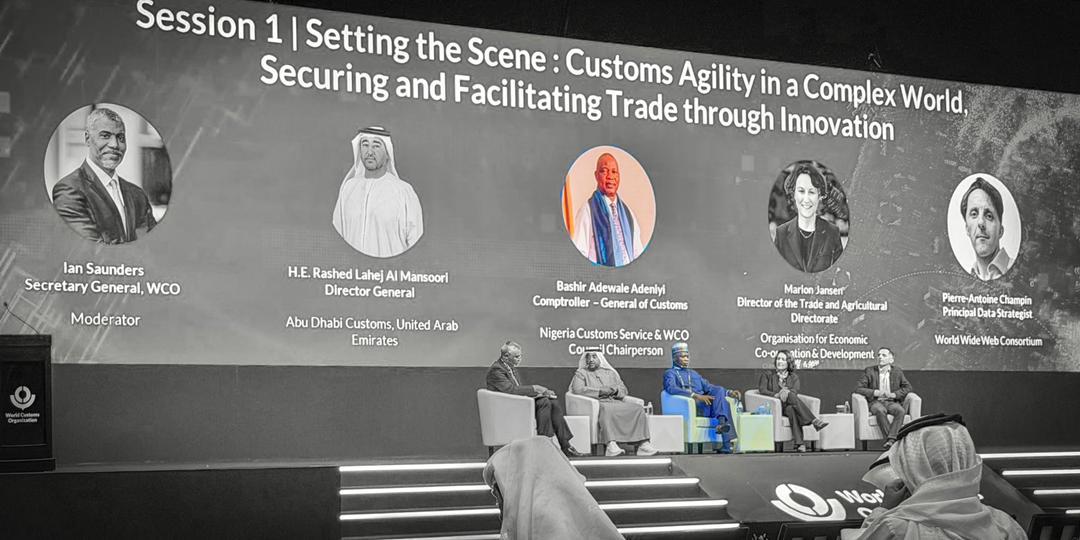
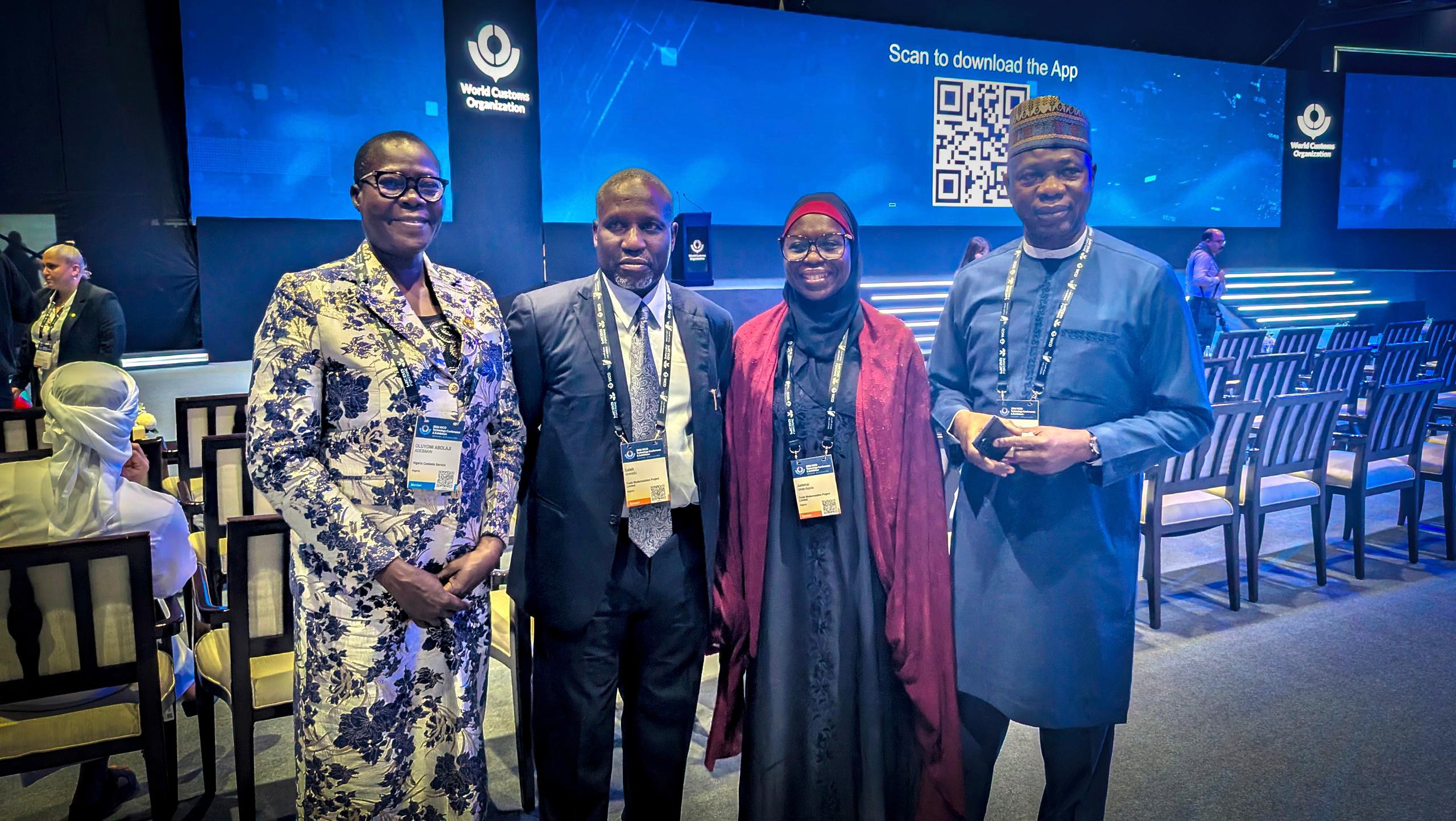

You must be logged in to post a comment Login